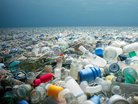The Breakdown of the Global Plastics Treaty isn't the end

In Busan, South Korea, the attempt to secure a global plastics treaty has hit a significant roadblock at the fifth Intergovernmental Negotiation Committee (INC-5) Summit.
Top leaders from 200 countries gathered with high hopes only to leave without consensus, as accusations and resentment surfaced, suggesting interference by major oil producers.
Anticipated to sum up two years of rigorous discussions, the summit was touted by several environmental groups, including Greenpeace, as pivotal; on par with the 2015 Paris climate agreement in terms of its potential impact.
However, it soon surfaced that oil giants, led by Saudi Arabia, mounted a campaign to obstruct any treaty terms that might crimp plastic production — underscoring the fact that a majority of plastics stem from oil and natural gas.
Despite this set back, manufacturers are continuing to address the problem of plastic pollution, creating innovative and sustainable alternatives.
Manufacturers push for change
Amidst governmental hesitation, manufacturers haven't been silent.
Leading global firms came together as the Business Coalition for a Global Plastics Treaty, advocating vehemently for a robust and enforceable framework.
This alliance boasts powerhouses like Unilever, Coca-Cola and SAP among its 275-plus members.
Despite their efforts, their hopes for a sweeping treaty were dashed initially, but they persist in their commitment.
Post summit the coalition openly expressed disappointment but confirmed their ongoing commitment to pushing for solid, actionable treaty terms.
“While it is encouraging that portions of the text have been agreed upon, we must also recognize that a few critical issues still prevent us from reaching a comprehensive agreement," says Ecuadorian diplomat Luis Vayas, who chaired the negotiations and proposed suspending the troubled talks until a later date.
The Business Coalition commented: “Despite tireless efforts by the INC Chair and government negotiators to finalise a global plastics treaty, it will not be agreed in Busan, as planned.
"We are encouraged by the increased alignment amongst over 100 countries on critical elements such as global phase-outs and sustainable levels of plastic production.
“Never before have so many countries clearly articulated support for these obligations.”
The statement continued by calling the latest text from the INC Chair a “step forward on product design and waste management as a basis for future negotiations”.
But the Coalition said that the failure to agree a deal “further delays critical action to end plastic pollution” and “fails to deliver the certainty that business needs to mobilise investment and scale solutions”.
The fight to address plastic continues
“The momentum is strong," says Anke Boykin, Senior Director Global Environmental Policy, PepsiCo.
"A vast majority of countries support ambitious global rules to address plastic pollution. The political will to take action exists.
"Progress has been made. Not only in the form of a significantly evolved text but also the debate itself that has reached a new level of depth and nuance.
"The collective understanding of key issues and needed actions continues to grow.
“There's more to do. The draft text clearly requires more debate, and crucial concepts like Extended Producer Responsibility (EPR) need clearer definitions and globally agreed principles to address vastly varying interpretations and accelerate EPR implementation.
"There’s no time to waste: we cannot afford this process sliding into unending negotiations.”
“In March 2022, 175 nations agreed to make the first legally binding treaty on plastics pollution, including in the oceans, by the end of 2024," says Adam Elman, Sustainability Director at Google.
“The world produces more than 400 million tons of new plastic every year, while production could climb about 70% by 2040 without policy changes.
“However, countries remained far apart on the basic scope of a treaty and could agree only to postpone key decisions and resume talks, dubbed INC 5.2, to a later date.”
The summit Chair, Luis, faced criticism for the latest draft treaty text.
Accusations from the Global South suggested the Chair's version capitulated too readily to the demands of oil-rich, plastic-producing nations.
In a reactionary move Luis rolled out a refined draft shortly before a press briefing.
Proposed as a foundational text for continued discussions in a follow-up summit, the draft has been humorously referred to as INC 5.2.
It will be further debated and explored next year.
As millions of tonnes of plastic continue to pollute our oceans and microplastics permeate even the most remote environments, the urgency for a cohesive global response only grows.
Manufacturers have certainly not given up on this front.
While INC-5 didn't conclude with a signed treaty, the groundwork laid and the ongoing commitment from various sectors suggest the fight against plastic pollution will continue to gather pace.
Explore the latest edition of Manufacturing Digital and be part of the conversation at our global conference series, Manufacturing LIVE.
Discover all our upcoming events and secure your tickets today.
Manufacturing Digital is a BizClik brand.
- Unilever Speaks on Failure of Global Plastics TreatySustainability & ESG
- Carbmee: Helping Maersk & Coca-Cola Curtail Carbon EmissionsSustainability & ESG
- Unilever: Global Plastics Treaty Needs Rules, not GuidanceSustainability & ESG
- Amazon's Bold Ambition to Grow its AI Chip-ManufacturingAI & Automation


